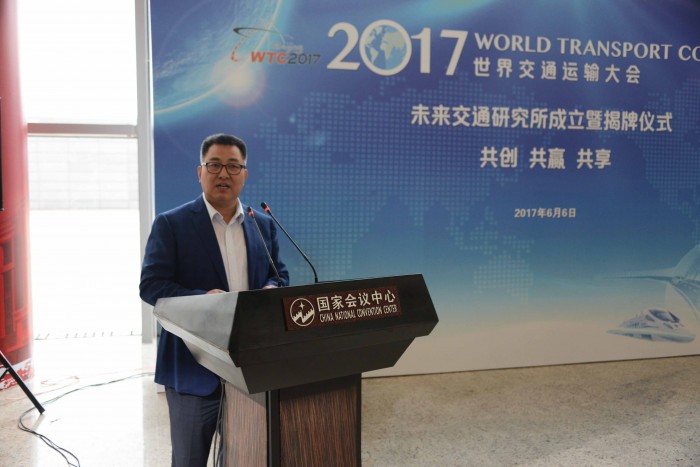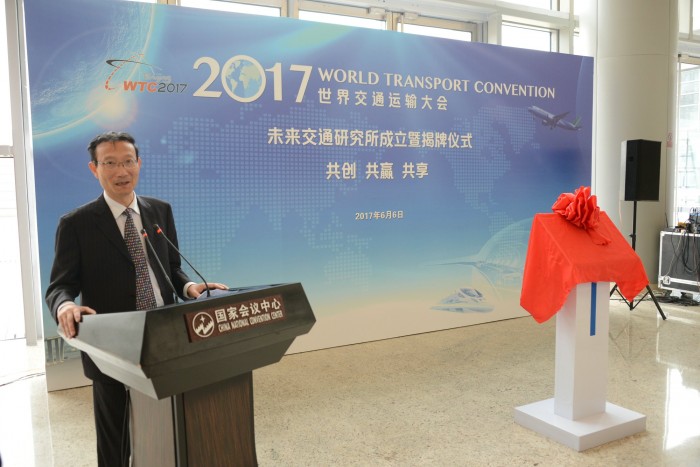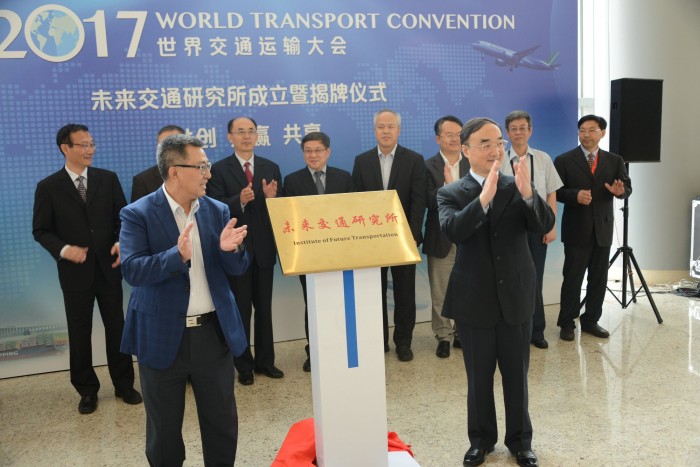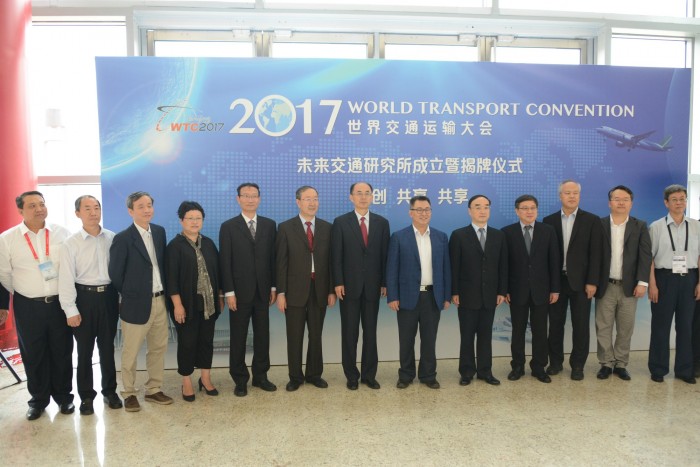On the afternoon of June 6, "Future Transportation Institute", which was guided by CAST (China Association for Science and Technology), led by National Academy of Innovation Strategy (NAIS) and coordinated with China Highway &Transportation Society(CHTS), CIN (China Institute of Navigation) and CSAA (Chinese Society of Aeronautics and Astronautics), was established and inaugurated in China National Conference Center, Beijing. Mr. Wang Chunfa, Party Member of CAST and secretary of the Secretariat, attended the ceremony and delivered a speech. The ceremony was chaired by Guo Zhe, Minister of Department of Research and Publicity of CAST, and Chairman Huang Youfang delivered a speech on behalf of CIN.
Secretary Wang Chunfa said, Future Transportation Institute is another high-end think-tank platform designed by CAST following after the establishment of Intelligent Society Institute and Intelligent Manufacturing Institute. It is also the key-cultivated think-tank of CAST. He pointed out that strengthening the construction of the think-tank was in line with the requirements of the central authorities and responsibility positioning of CAST, and it is also one of the important initiatives to deepen reform. In recent years, CAST actively has promoted scientific and technological innovation think-tank system based on the principle of "small centers, large peripherals" and given full play to the core leadership and key support role of NAIS. Relying on the Institute of the Commonwealth, local associations and enterprises, a group of highly representative high-end think-tank platforms of CAST have been set up. At the same time, great progress has been made in China's transportation, and a world leader level has been reached in many high-tech fields. However, the future research capabilities and technological abilities are still lagging behind the Occident. In view of the future of transportation which was facing many major strategic and technical problems, developed countries in the Occident had launched a full range of researches. But professional research institutions, initiated by the social organization and took the future transportation research projects as a link, were still in a state of absence in China. Therefore, strengthening the future development of transportation is not only the general trend but also the needs for development. At the same time, he also expected that Future Transportation Institute could fully play an active role in scientific decision-making services for the Party and government, and to the development of the industry, moreover providing more supportive services for future transportation development. All parties should do their part respectively, and we are committed to create Future Transportation Institute as a national think-tank in the field of future transportation research.
Huang Youfang said in his speech that there were many traffic problems deserving attention under the background of the Belt and Road Initiative. Some had already been noticed, some could be predicted, but more problems remained unpredicted. Future Transportation Institute was established when China was vigorously implementing the Belt and Road Initiative, which was also a good chance. He also expected that Future Transportation Institute had a heavy responsibility and still remained a long way to go because the future traffic problems are not only concerned with technical problems, but also with the traffic management, economic development, trade, cross-border e-commerce, the free trade zones along the Belt and Road and the set-up of global supply chain sites.
Other participants include Zhou Wei, Chief Engineer of the Ministry of Transport, Su Xiaojun , Vice Minister of the CAST, Chen Rui, Vice President of National Academy of Innovation Strategy(NASI), Zhang Xigang, Vice Chairman of the Chinese Highway & Transportation Society(CHTS), Chief Engineer of China Communications Construction, Shi Baolin, president of China Academy of Transportation Sciences, Chen Feng, president of Chang’an University, Wang Xianjin, vice president of China Academy of Transportation Sciences, Liu Zhanshan, vice president of China Waterborne Transport Research Institute, Wu Song, secretary general of the CSAA, Wang Qun, secretary general of CIA and other leaders of relevant units, as well as the experts and scholars from scientific and technological circles and industries and business representatives.
Under the guidance of NAIS and with the CHTS, CIN and CSAA responsible for the integration of the resources of future transportation, Future Transportation Institute will collaborate with other units with foresight, innovation and application in social and transportation industry to build a special research unit and center (laboratory) when the conditions are mature. Initially, the work will be conducted in the fields of new energy, big data, integrated transportation, structural experiments, composite materials and so on. The Institute will also set up a coalition of communications technological innovation to attract other units possessing with production, learning, research and application which are related to , interested in and have resources in the future transportation. Finally, a world-class innovation base integrated with the technological research and development, lab center, modern logistics and conference and exhibition will be formed.




